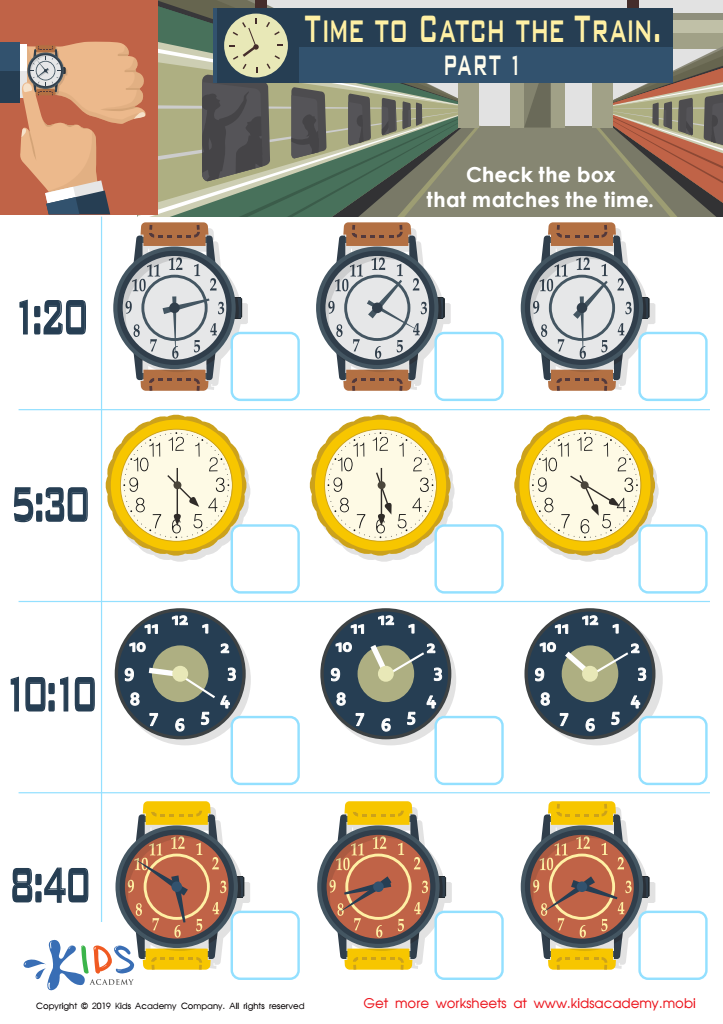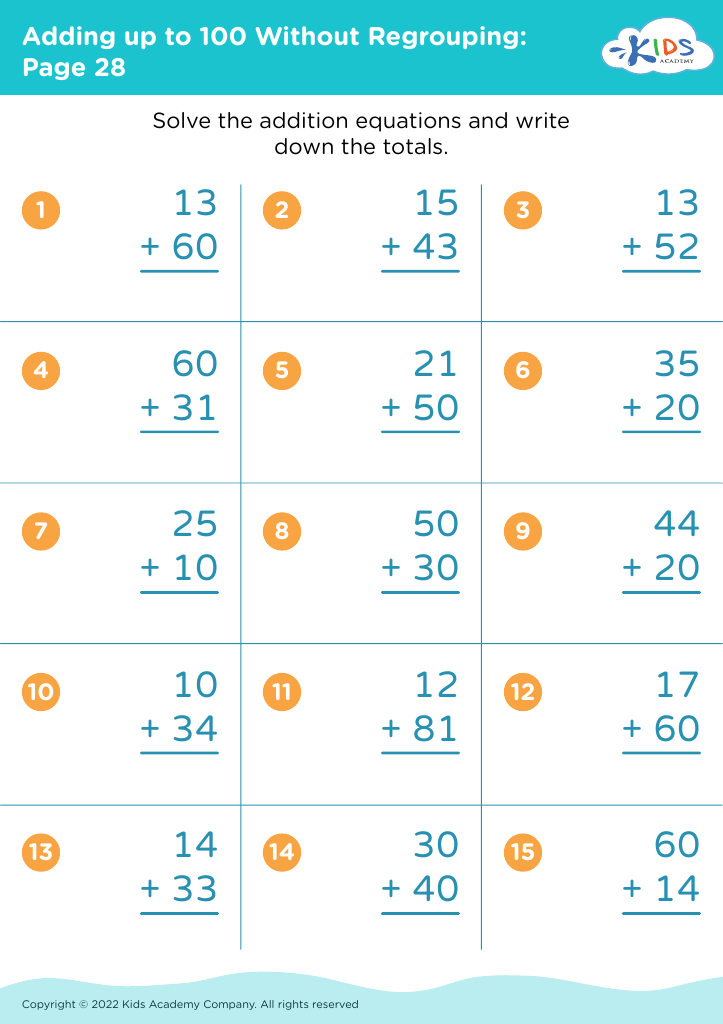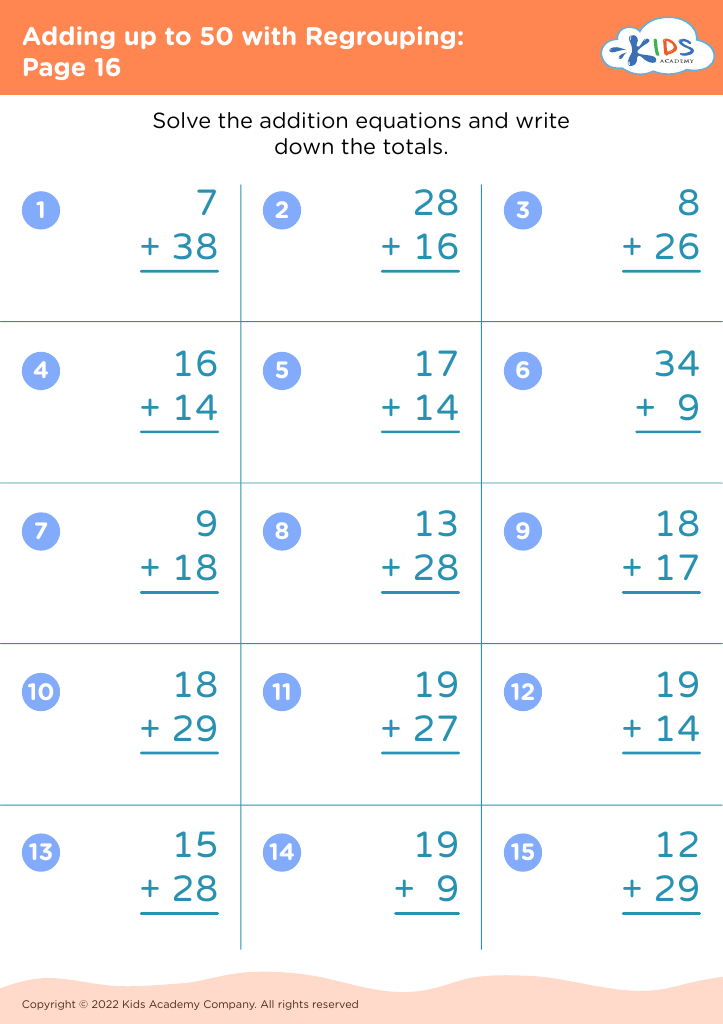Critical thinking development Math Worksheets for Ages 3-8
4 filtered results
-
From - To
Unlock your child’s potential with our engaging Critical Thinking Development Math Worksheets designed for ages 3-8. These thoughtfully crafted worksheets encourage young learners to explore mathematical concepts through problem-solving and analytical thinking. Each activity fosters essential skills, such as pattern recognition, logical reasoning, and critical analysis, ensuring a strong foundation for future academic success. With colorful illustrations and fun exercises, children will enjoy hours of captivating learning experiences that stimulate their minds. Perfect for home or classroom use, our worksheets empower parents and educators alike to inspire passionate, confident mathematicians from an early age. Start nurturing critical thinking today!


Time to Catch the Train Part 1 Worksheet
Critical thinking development in mathematics for children aged 3-8 is essential for a multitude of reasons. First and foremost, it sets the foundation for future learning. Young children are naturally curious, and fostering this curiosity through math encourages them to ask questions, explore concepts, and develop problem-solving skills. When parents and teachers prioritize critical thinking in math, they help children understand not just how to get answers but why those answers are correct, promoting deeper comprehension.
Moreover, critical thinking in math cultivates analytical skills, enabling children to approach challenges systematically. This skill is invaluable not just in academics but in daily decision-making and problem resolution. By learning to think critically about mathematical relationships, patterns, and functions, children boost their cognitive development and become more adept at tackling complex issues.
Additionally, involving parents in this process enhances the child's learning experience. When parents engage in critical thinking activities with their children, it strengthens bonds and reinforces the importance of learning outside the classroom. Overall, critical thinking in early math education lays a crucial groundwork for lifelong skills, contributing to more effective learners, better problem solvers, and engaged citizens in a rapidly changing world.



 Assign to My Students
Assign to My Students



















